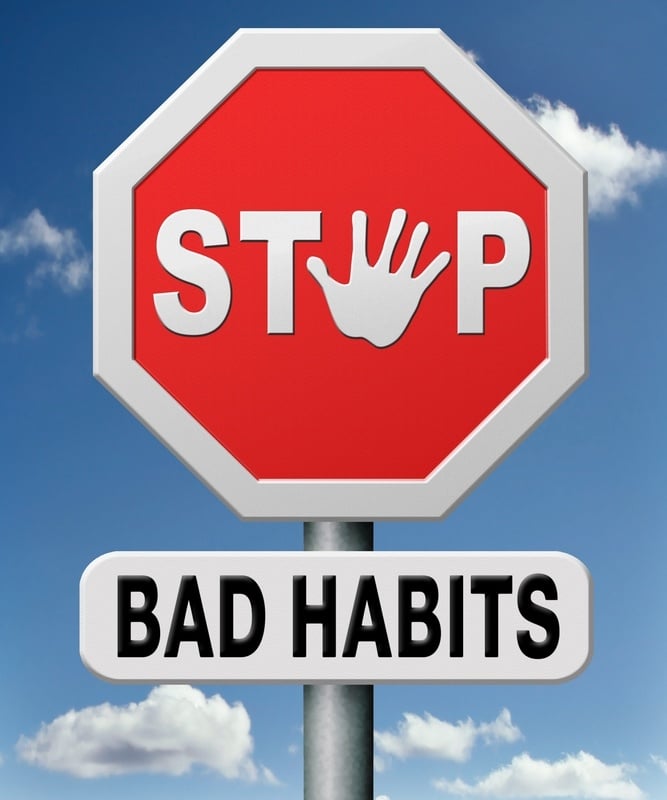 by Ken Lopez
by Ken Lopez
Founder/CEO
A2L Consulting
In our role as trial consultants, we frequently work with some of the top law firm litigators in the nation, as well as with in-house counsel for some of the nation’s major companies. Ideally, we form a cohesive team that works seamlessly to provide outstanding trial representation and to win cases.
Occasionally, we find that law firm litigators are engaging in bad habits that can increase inefficiency, cost the client money, and decrease the chances of winning at trial. Here are seven of them.
1. Lawyers designing PowerPoint slides. Anyone who went to law school can of course use PowerPoint. Generating PowerPoint slides is not difficult, and lawyers are smart. Many lawyers can even make PowerPoint slides that look nice. But:
a. It's not about pretty slides, it's about effective slides, and the rules for how to create those take years to learn. See Litigation Graphics: It's Not a Beauty Contest
b. A lawyer doing slides costs the same or more per hour than a litigation graphics expert doing slides. Classically, you could cut your own hair, but why would you? See How Valuable is Your Time vs. Litigation Support's Time?
c. A lawyer creating slides does not know the tricks of the trade. See Trial Graphics Dilemma: Why Can't I Make My Own Slides? (Says Lawyer)
d. A lawyer creating slides will likely tell a chronological story instead of an effective story. See Don't Be Just Another Timeline Trial Lawyer
e. A law firm might claim to have in-house litigation graphics expertise (See 13 Reasons Law Firm Litigation Graphics Departments Have Bad Luck). But ask yourself: How many trials does that law firm do per year? For even the largest firms, that answer may be a couple dozen. How many cases does that lone artist work on? A small percentage of what is already a small number? Contrast that with a litigation consulting firm with graphics expertise that might do 50 or 100 trials per year concentrated among a handful of key staff. See With So Few Trials, Where Do You Find Trial Experience Now?
2. Paralegals running trial technology. This is pretty common, and I'm not as adamant about this as I am about content creation. Still, when something goes wrong, you want to have one or more people on the team who have been to hundreds of trials, not a few. You might save some money by keeping the service in-house, but the savings are small if any, and the trade-off is a lot of risk. Free Download: How To Find and Use Trial Technicians and Trial Technology
3. Conducting in-house mock trials. I call this getting high on your own supply. You should pick mock jurors from a broad base of people that mirrors your likely jury. See 11 Problems with Mock Trials and How to Avoid Them
4. Lawyers running PowerPoint at trial. It often works, but it often does not work. Why would you allow your litigators to create risk with almost no benefit? See Making Good Use of Trial Director & Demonstratives in an Arbitration and 12 Ways to Avoid a Trial Technology Superbowl-style Courtroom Blackout
5. Outside litigators who are afraid to ask for help. Litigation is one of the few competitive areas in which people are afraid to rely on coaches, best practices, and experts, and that makes no sense. Even Michael Jordan had a coach. See Accepting Litigation Consulting is the New Hurdle for Litigators
6. Outside trial counsel who is afraid to ask for a needed budget item. They often see a pie of a set size, and asking for budget for a mock trial or other litigation consulting support, might take pie away. You should instead see a pie whose size can be changed when it makes sense. See In-House Counsel Should Make Outside Litigation Counsel Feel Safe
7. Outside litigators who conduct frighteningly last-minute preparation for trial. I really think the days of the cowboy litigator who rides in at the 11th hour and charismatically bends a jury to his will are largely over. The opposition is much more sophisticated now, and so are juries. See The 13 Biggest Reasons to Avoid Last-Minute Trial Preparation
Have you ever seen any of these habits play out?
Other articles and resources by A2L Consulting focusing on trial preparation, the relationship between in-house counsel and outside litigators and on winning cases generally include:
- Download Free: Storytelling for Litigators Guidebook
- Free Webinar: 12 Things Every Mock Jury Ever Has Said
- 25 Things In-House Counsel Should Insist Outside Litigation Counsel Do
- 16 PowerPoint Litigation Graphics You Won't Believe Are PowerPoint
- The 14 Most Preventable Trial Preparation Mistakes
- 9 Things In-House Counsel Say About Outside Litigation Counsel
- The Top 14 TED Talks for Lawyers and Litigators 2014
- 12 Alternative Fee Arrangements We Use and You Could Too
- The 12 Worst PowerPoint Mistakes Litigators Make
- 21 Ingenious Ways to Research Your Judge
- 10 Videos to Help Litigators Become Better at Storytelling
- 5 Things Every Jury Needs From You
- 7 Things Expert Witnesses Should Never Say
- 7 Things You Never Want to Say in Court
- 16 Trial Presentation Tips You Can Learn from Hollywood





Leave a Comment